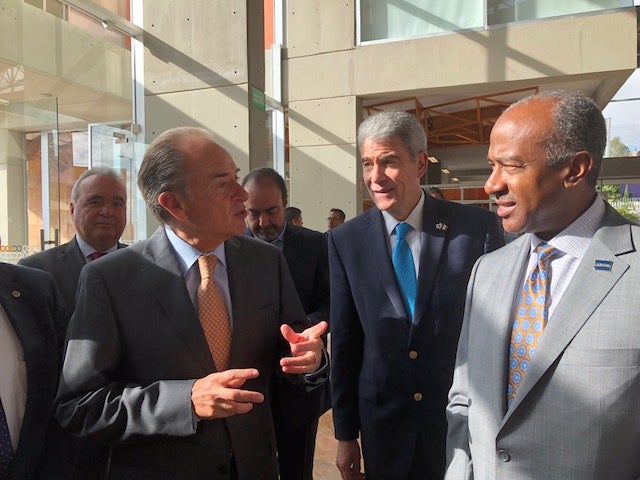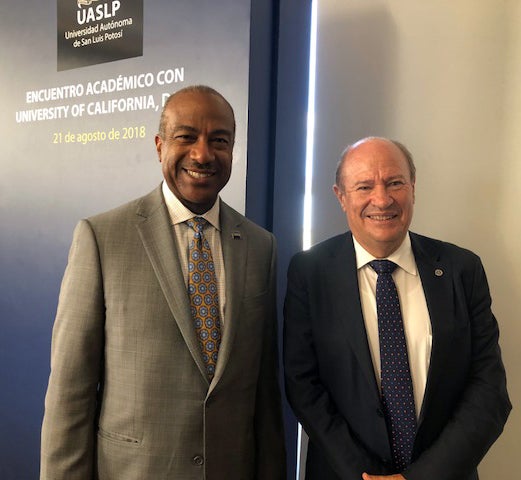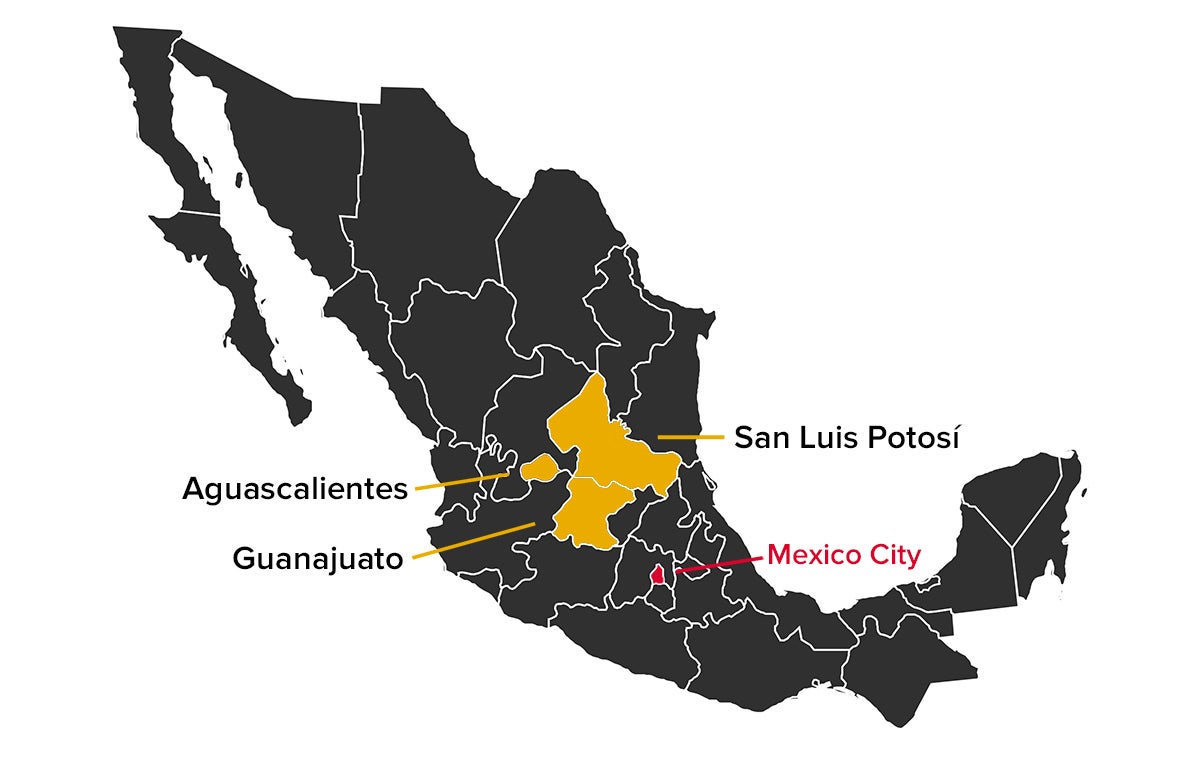A UC Davis delegation led by Chancellor Gary S. May is in Mexico this week for talks with government, university and industry leaders in three states about building partnerships with UC Davis faculty and academic units.

UC Davis is attending meetings taking place through the end of this week in the central Mexican states of San Luis Potosí, Aguascalientes and Guanajuato, all north of Mexico City. The visit was planned in collaboration with the National Association of Universities and Institutions of Higher Education, and Casa de la Universidad de California, the university’s home in Mexico. The Mexican consulate in Sacramento, where UC Davis alumna Liliana Ferrer is the consul general, also assisted UC Davis in planning for the trip.
See below for a map and more information about each state.
GLOBAL NOTES
- Joanna Regulska, vice provost and associate chancellor, layout the university’s new international agreement proposal and approval process.
- UC Davis and Pontificia Universidad Catolica de Chile renew agreement of cooperation, in signing ceremony in Santiago.
- Professor Michael Siminovitch, director of the California Lighting Technology Center, participates in California-Mexico Advocacy Day at the Mexican Consulate in Sacramento.
- “Consul General Welcomes UC Davis Exchange Students”
The delegation: May and his wife, LeShelle; Joanna Regulska, vice provost and associate chancellor, Global Affairs; and two deans and a vice chancellor: Dean Helene Dillard of the College of Agricultural and Environmental Sciences, and Dean Jennifer Sinclair Curtis of the College of Engineering; and Prasant Mohapatra, vice chancellor, Office of Research.
Rounding out the delegation: David E. Block, Ernest Gallo Endowed Chair in Viticulture and Enology Professor and Marvin Sands Department Chair, Department of Viticulture and Enology; Stephen Robinson, professor and chair, Department of Mechanical and Aerospace Engineering; and David H. Wisner, associate dean for clinical affairs and director of the Practice Management Board, UC Davis Health.
They are sitting down with governors, government ministries, industry representatives and university rectors to discuss shared priorities in food, water, wine, energy, health and manufacturing.
“Given our already close ties, this visit will deepen our collaborations on pressing topics in both California and Mexico,” Regulska said. “There are tremendous opportunities for new mutually-beneficial academic and research projects.”
Close, historic ties

The visit meshes with a proposal last year from the UC Davis Global Centers Faculty Advisory Committee for Latin America and the Caribbean — a proposal to strengthen UC Davis’ collaboration with Mexico. In its final report, the committee emphasized the strength and history of California’s ties to Mexico, and the critical importance of collaborations with Mexico.
More than 80 UC Davis faculty members have ongoing linkages with Mexican institutions and scholars; UC Davis and Mexican collaborators have co-authored more than 1,000 publications since 2010.
UC Davis hosts a significant number of Mexicans as visiting scholars, postdocs and graduate students, and a large number of Mexican-origin undergraduate students. On the flip side, Mexico is a main destination for students in education abroad programs.
About the destinations

- AGUASCALIENTES — The state’s rural area is one of Mexico’s largest producers of grapes and wine. Other economic highlights: manufacturing and energy. Health is priority issue as the state seeks better hospital quality and better mental health resources.
- GUANAJUATO — Mining and agriculture are the biggest contributors to the state’s economy. Other economic highlights: manufacturing and wine (25 producing ranches in the state). Infrastructure is a priority, as the state seeks to accommodate foreign investors and expected growth.
- SAN LUIS POTOSI — The state’s mining industry is the biggest contributor to Mexico’s gross domestic product. Other economic highlights: manufacturing, energy and wine.
Water issues in all three states are as follows: maintaining water as a quality resource in Aguascalientes, poor quality in Guanajuato due to erosion, and conservation and reuse in San Luis Potosi.
Media Resources
Dateline Staff, 530-752-6556, dateline@ucdavis.edu